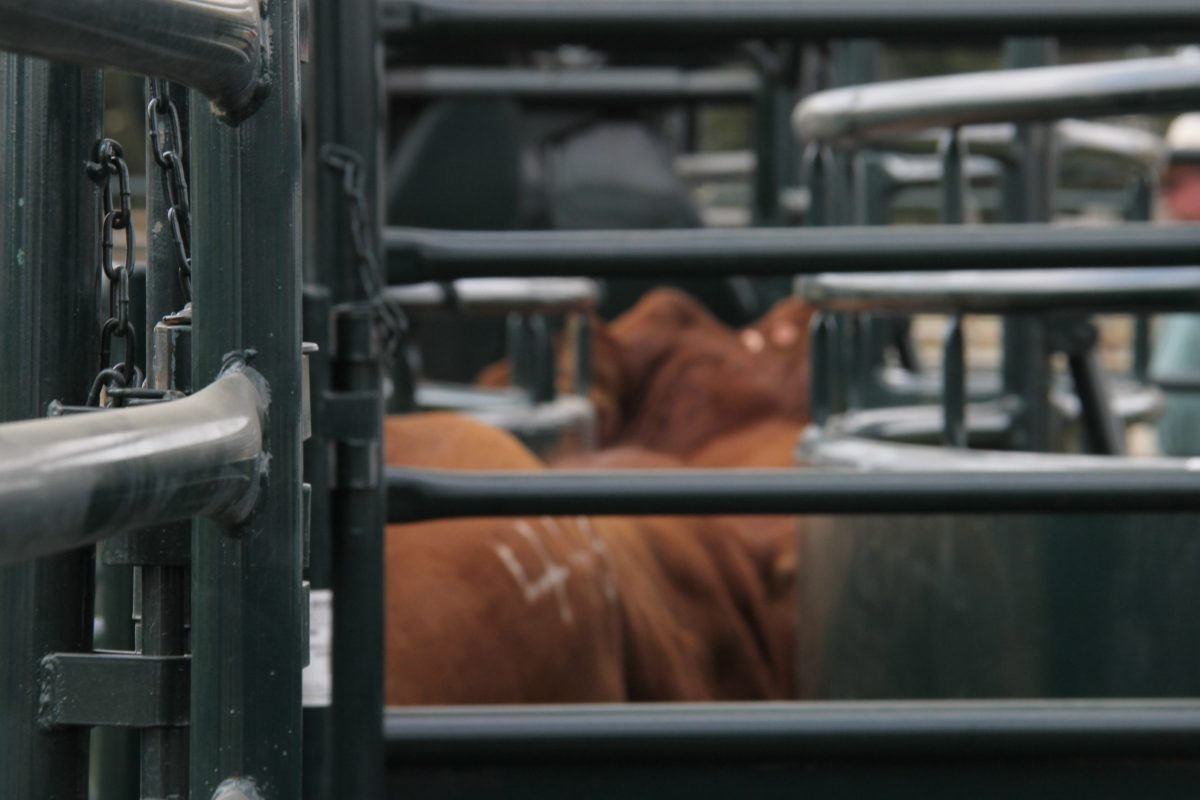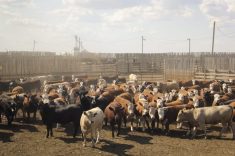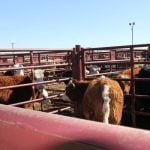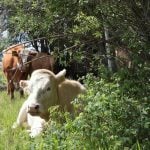Western Canadian feeder cattle prices traded $3-$7 lower on average, with shorter-keep replacements over 850 lbs. as much as $10 lower in some cases. Alberta packers were buying fed cattle in the range of $159-$161, down nearly $12 from week-ago levels.
Most auction markets had limited numbers on offer, with many sales barns in summer mode. However, the market faded throughout the week as feedlot operators started to factor in a worst-case scenario six months forward. Wide price ranges were reported on shorter-keep cattle. In central Alberta, mixed steers with no special feature averaging about 850 lbs. were trading from $181 to $187 while in Manitoba, similar-weight featureless steers were in the range of $189-$195. It’s difficult to explain every sale but this variability is also a sign of an extremely vulnerable market. The quality of cattle on offer was relatively poor this week, which contributed to the weaker tone. It’s always better to sell late stragglers when the market is hot, rather than when there are limited cattle on offer.
Read Also

U.S. livestock: Cattle mixed on technicals, profit taking after tight supply rally
Chicago | Reuters – Chicago Mercantile Exchange cattle futures ended mixed on Wednesday as tight supplies and higher choice beef…
Mid-weight feeders and calves were also under pressure. Feedlot operators were on the sidelines and the farmer-cattle producer shopping for grassers experienced limited competition. Mixed Angus-based steers averaging just under 700 lbs. were quoted at $228 in southern Alberta; mixed heifers averaging 600 lbs. were reported at $195. Calves that were under 600 lbs. tended to hold value with week-ago levels on quality packages.
The tide has turned and feedlots realize the buying power has shifted. Alberta steer carcass weights jumped from 818 lbs. on June 3 to 831 lbs. on June 10. Packers are buying cattle for early July delivery and market-ready supplies are increasing each week on both sides of the border. Feeding margins are expected to come under pressure in the deferred positions. Buyers are now acting like a scared rabbit on replacement purchases with the fall of 2016 fresh in their minds.
— Jerry Klassen manages the Canadian office of Swiss-based grain trader GAP SA Grains and Produits Ltd. and is president and founder of Resilient Capital, specializing in proprietary commodity futures trading and market analysis. Jerry consults with feedlots on risk management and writes a weekly cattle market commentary. He can be reached at 204-504-8339.
















